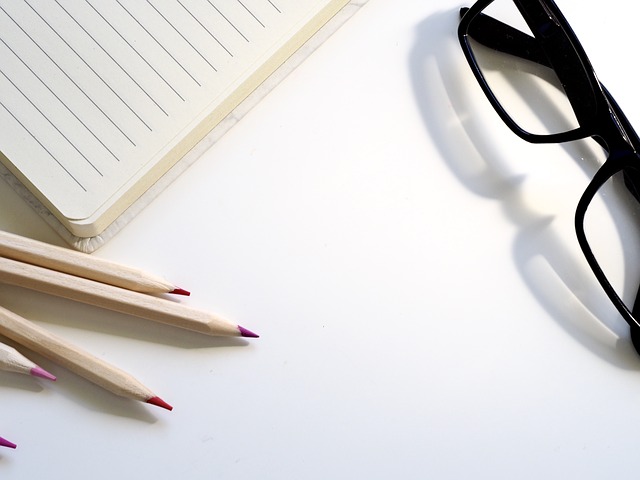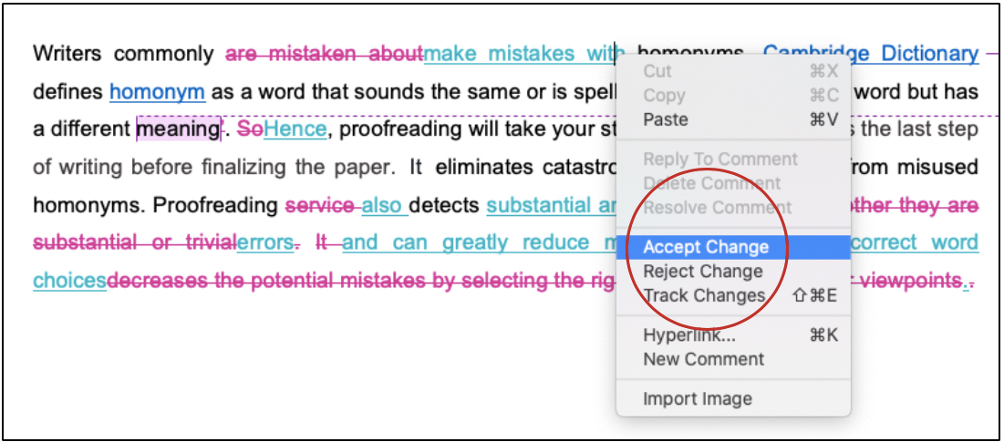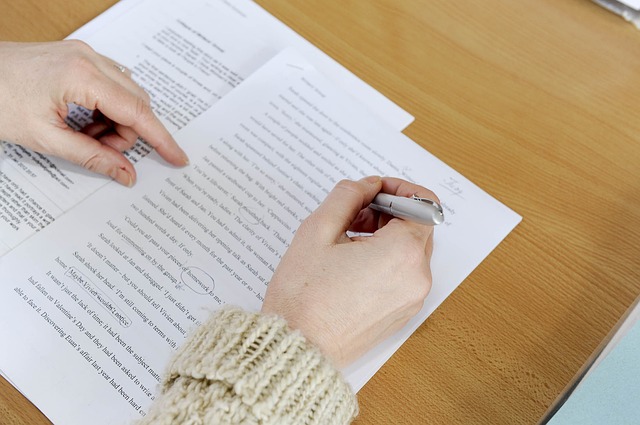No matter what you are working on, be it a commercial project or an academic work — editors and proofreaders are indispensable individuals to your team. While many researchers believe that they can make it without an editor and proofreader, the truth is having someone to check and recheck your work can help elevate the quality of your work by leaps and bounds. There are several reasons why you should let someone edit and proofread your work. But before all that, we will help you understand what an editor and proofreader can help you achieve. This article gives you some basic information so you can understand the roles of editors and proofreaders, along with how they can help you improve your work.

There are several reasons why you should let someone edit and proofread your work. But before all that, we will help you understand what an editor and proofreader can help you achieve. In this article, we will give you some essential information so you can understand the roles of editors and proofreaders, along with how they can help you improve your work.
To begin with, many scholars or students think that proofreading is the same as editing. Well, proofreading is a part of the editing, but they are not quite the same things. When we say that a document needs editing, what we essentially mean is that there need to be major changes in the construction, structuring, the literal and content composition of the material.
Proofreading refers to the last phase of the editing process. Here, proofreaders go through the entire material, looking for trivial mistakes that otherwise remain overlooked. Hence, here, proofreaders check for spelling mistakes, typing mistakes, minor grammatical errors, and so. You can say that proofreading is like the last touches for work so that it can be published or post-worthy.
The main purpose of proofreading is to correct all errors in grammar, punctuation, syntax, and spelling in a manuscript. If you wish to see whether the final version of your document contains any minor errors, then you need proofreading services instead of editing services. However, editing services necessitate more of an extra effort from an editor than does proofreading. The main purpose of the editing service is to improve the academic quality of your manuscript, hence the content, overall structure, quality of findings and analysis, simplicity, and referencing.
Editing will mostly make some fundamental changes to improve the standard of the academic writing of the document. Accordingly, editors will sometimes re-write some parts of your document. This is especially important because an editing service aims to guarantee that the purposes of the document are met.
An editing service ensures that a paper is error-free. Thus, an editor will correct all errors in grammar, typography, punctuation, syntax, and spelling in a manuscript. In this sense, the editing service includes the proofreading service as well. However, strictly speaking, proofreading your document is the last stage before it is delivered to you. Therefore, even if an editor has corrected many of the errors that a proofreader would correct, the document must still pass through this last stage—proofreading.

When you complete the first draft of your work, that is when your editor comes into play. They will take your draft and make necessary changes on the following fronts:
Helps improve the readability of the content by focusing on the specific and correct use of words
Focuses on the clarity of the work by ensuring that the content is relevant to the topic or matter and helps in bringing precision by focusing on the right tone and rhythm of the work
Helps on the construction, structuring, and composition of the work to ensure smooth flow of narration and transparency of the message that the author wants to deliver
What an editor does is help increase the quality of your work by making sure that your content is relevant to your topic. They also ensure that the message and meaning that you want to convey through your work stay intact and decipherable by your readers.
In other words, editors help refine your work while maintaining your style and format to make the best out of your work. It is a team effort where you and your editor will work on your content so that you can bring out the best while eliminating unnecessary materials.
As we mentioned earlier, proofreading is the last stage of the writing process. So, after both the writer and editor give their green signal, you forward the work to the proofreader who goes through the document on the following front:
Helps increase readability by addressing wrong spellings, punctual and grammatical errors, inconsistencies, and so on.
Looks out for overlooked errors and mistakes, including typing errors and wrong formatting, citations, and such.
Proofreading, unlike editing, does not take time and is done right before the work is published, submitted, or used. It is equivalent to looking through an already edited work to ensure that all the loose ends are tied properly to give you neat and well-written work.
Editing is a long process that may take more than a few tries. However, proofreading takes place right before publishing or submission to give the last touches to your work. Either way, editing and proofreading are necessary stages in the process of writing that you cannot overlook if you are looking for a good piece of work.
Therefore, it is better if you do not skip the editing and proofreading phases for your writing process. You may do it on your own, or you can always hire professional services. Professional services have an ample amount of knowledge and expertise that you may, otherwise, be lacking.
Therefore, do not hesitate to rely on professional editing and proofreading services. Now that you understand what an editor and proofreader do, all that is left is for you to try it out yourself. Only then will you see for yourself the necessity of editing and proofreading for your works.
Best Edit & Proof expert editors and proofreaders focus on offering manuscripts with proper tone, content, and style of academic writing, and also provide an upscale editing and proofreading service for you. If you consider our pieces of advice, you will witness a notable increase in the chance for your research manuscript to be accepted by the publishers. We work together as an academic writing style guide by bestowing subject-area editing and proofreading around several categorized writing styles. With the group of our expert editors, you will always find us all set to help you identify the tone and style that your manuscript needs to get a nod from the publishers.
You can also avail of our assistance if you are looking for editors who can format your manuscript, or just check on the particular styles for the formatting task as per the guidelines provided to you, e.g., APA, MLA, or Chicago/Turabian styles. Best Edit & Proof editors and proofreaders provide all sorts of academic writing help, including editing and proofreading services, using our user-friendly website, and a streamlined ordering process.
Visit our order page if you want our subject-area editors or language experts to work on your manuscript to improve its tone and style and give it a perfect academic tone and style through proper editing and proofreading. The process of submitting a paper is very easy and quick. Click here to find out how it works.
Our pricing is based on the type of service you avail of here, be it editing or proofreading. We charge on the basis of the word count of your manuscript that you submit for editing and proofreading and the turnaround time it takes to get it done. If you want to get an instant price quote for your project, copy and paste your document or enter your word count into our pricing calculator.
Contact us to get support with academic editing and proofreading. We have a 24/7 active live chat mode to offer you direct support along with qualified editors to refine and furbish your manuscript.
Follow us on Twitter, LinkedIn, Facebook, Instagram, and Medium.
For more posts, click here.
This article gives you some essential information to understand the roles of editors and proofreaders, along with how they can help you improve your work. To give you an opportunity to practice proofreading, we have left a few spelling, punctuation, or grammatical errors in the text. See if you can spot them! If you spot the errors correctly, you will be entitled to a 10% discount.

When you start with academic writing, it is easy to confuse editing and proofreading. Each service requires close and careful reading but uses different methods and focuses on different aspects of the manuscript. Both services produce different outcomes for writers, and therefore, our potential clients must be aware of what they do. As a beginner, you may make the same common mistake as the rest, but we are here to help things set straight. In this article, we will learn the exact meaning behind these two concepts, what they are, and how they are different from each other.
Continue Reading
Editing and proofreading your manuscript is an important step before submitting it to peer-review journals. In this guide, we will go through the step-by-step process of editing and proofreading before your manuscript gets submission-ready.
Continue Reading
Anything you are good at can become a business if you know what you are doing. If you are a person with good writing and editing abilities, and you have been wondering how you can turn it into a career— editing and proofreading as a business might just be your thing. If you can easily spot mistakes in writing, both grammatically and structurally, turning your skills into a business can be a great idea. Recently, there is a surge in demand for freelance editors and proofreaders, and the pay can be very generous, depending on your skills. If you are thinking of starting a business providing editing and proofreading services, this article is for you.
Continue Reading
Content marketing is an essential marketing strategy in today’s time. After all, we are exposed to content no matter where we go. In fact, in 2020 alone, the consumption of online content doubled in its rate, and it’s rising every moment. Many marketers have prioritized content marketing as it is the one strategy that is sure to bring you results with lesser investment. But what does it have to do with editing and proofreading? If you are a marketer, or anyone related to either of these two fields, this article will surely be enlightening.
Continue Reading
Proofreading is the process of checking errors in your written content before posting or sharing it. It is the last step of writing and includes the correction of various spelling, punctuation, typos, and formatting mistakes, or inconsistencies. Whether your content is an academic paper, online article, print flyer, or job application, you need to proofread the content. As proofreading is a significant step in the entire writing process, you need to know the following 8 proofreading tips.
Continue Reading